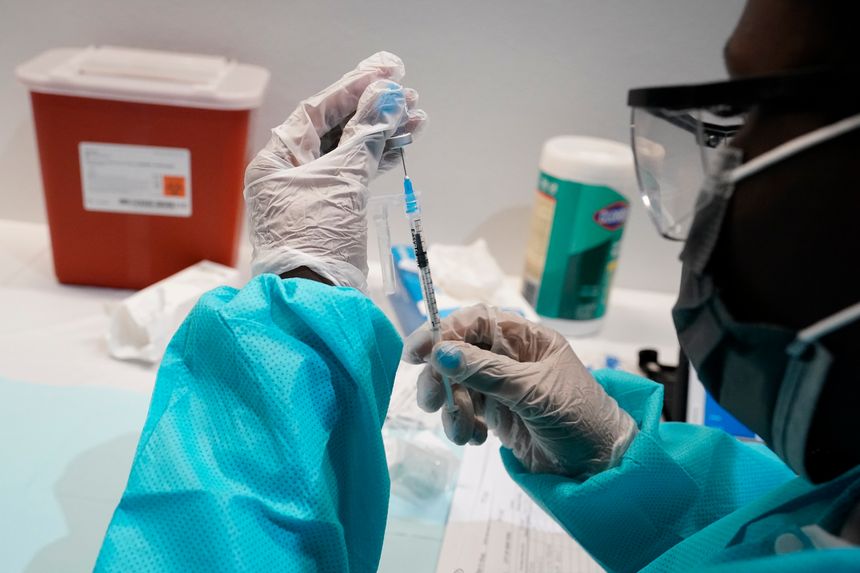
Source: WSJ.com
Employers generally can require shots, but accommodations must be made for religious objections, disabled people and unionized workers
Few companies outside the healthcare industry require their staff to be vaccinated against the flu or other communicable diseases.
Large employers have begun moving to compel their employees to be vaccinated or get tested regularly for Covid-19, with California and New York City taking the first steps.
The U.S. Department of Veterans Affairs mandated vaccines for its healthcare workers, and President Joe Biden is expected to announce Thursday—pending a policy review—that his administration will require federal employees to get vaccinated or be regularly tested.
Most private-sector employers have stopped short of imposing vaccine mandates, however the growing coronavirus threat might persuade more companies to reverse course.
Can employers impose vaccine mandates?
Legally, there is little preventing private or public employers from imposing vaccination requirements, said labor and employment lawyers. The law allows public and private employers to impose vaccination mandates, so long as they aren’t violating workplace-discrimination laws, they said.
Few companies outside the healthcare industry require their staff to be vaccinated against the flu or other communicable diseases as a condition of employment, yet hospital systems in several states have mandated vaccines for employees and new hires. Federal lawsuits in a handful of states have resulted in Covid-19 vaccine mandates being upheld. A federal judge in Texas ruled in June that a hospital system could require employees to be vaccinated, and Indiana University was allowed to require students, faculty and staff to provide proof of Covid-19 vaccines. Dozens of other private and public colleges and universities have adopted similar vaccine policies.
What is the legal authority?
The Equal Employment Opportunity Commission, an authority for both public and private employers, has issued guidance that employers could require employee vaccinations, so long as they offer reasonable accommodations to people who refuse the vaccine because of a disability or religious belief covered by the Americans with Disabilities Act or Title VII of the Civil Rights Act. Employers must also comply with laws ensuring a safe workplace.
In July, the Justice Department’s Office of Legal Counsel issued an opinion that said it is legal to require vaccinations that are distributed with an emergency-use authorization; the three mainstream Covid-19 vaccines received EUAs and aren’t yet fully approved by the U.S. Food and Drug Administration.
Having emergency status, the opinion said, “does not prohibit public or private entities from imposing vaccination requirements, even when the only vaccines available are those authorized under [emergency-use approval.]”
Can unionized workers oppose vaccine requirements?
Nearly half of U.S. government workers are represented by unions and covered under collective-bargaining agreements—contracts between employers and unions that negotiate wages, benefits and working conditions, according to Samuel Estreicher, a law professor at New York University School of Law. This is particularly relevant in New York City, which is heavily unionized.
“In most states, you’d have to bargain over mandatory vaccines as a condition of employment,” he said.
Public-employee unions could challenge the vaccine mandate. In states that require collective bargaining, like New York, unions could try to bargain with employers about the requirements and procedures.
Whether vaccine mandates are considered a new workplace policy that must be bargained for might hinge on the language included in each collective-bargaining agreement, said Prof. Estreicher.
“There might be language in collective-bargaining contracts that will give the employer a basis, but generally, the employer should negotiate,” he said.
Are there legal grounds to oppose vaccine mandates?
If there are no religious objections or disabilities, it is unlikely any challenge would prevail, particularly where employees are given an alternative to vaccination: weekly Covid-19 testing and wearing masks, said Tanya Blocker, a labor and employment attorney based in New York City.
“It’s almost as if that’s a compromise,” she said.
Even if an employee doesn’t get vaccinated for religious or medical reasons, Ms. Blocker said it would be difficult to also claim that antidiscrimination laws apply to getting tested via nasal swab before coming back to work.
“They really don’t have a leg to stand on,” said Ms. Blocker of legal objections to mandatory testing. “What underlying medical condition do you have that would interfere with a nose swab?”
If it is legal, why aren’t more employers mandating vaccines?
Covid-19 vaccine mandates remain rare, in part because they have resulted in employee lawsuits and termination of workers. With the labor market so tight, employers risk losing workers who don’t want to be vaccinated.
Typically, companies have more incentive to encourage, facilitate and subsidize vaccinations to help curb the spread of disease because it is unlikely they would be held liable for not imposing a mandate. However, some attorneys have encouraged employers, particularly in the private sector, to wait for new laws or clarifications to existing ones before mandating vaccines.
California-based employment attorney Pascal Benyamini said the state’s guidance doesn’t say that an employer can mandate the vaccine. Instead, it outlines steps an employer must take if it chooses to require staff vaccinations.
“If we had some clarity on that, more and more employers would feel comfortable mandating the vaccine,” he said.
A patchwork approach appears to be emerging, with vaccines required based on job type, geography, work setting and clientele. Some meat-processing companies required the vaccine for new corporate hires this spring, but stopped short of mandating vaccines for the whole workforce. Other companies with employees in tight spaces did require the shots.
Source: The Wall Street Journal July 28, 2021 | By Deanna Paul